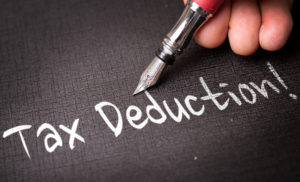There may seem to be a million and one things to keep track of when you file Chapter 13 bankruptcy. It can be an overwhelming process but the good news is that there are bankruptcy attorneys here to help you. When you choose to work with The Law Offices of Paul Y. Lee, you are working with an attorney who has been through this process over and over again. We can ensure that you are always up to date on what is going on and what your options are.
Today we are going to discuss some of the tax deductions that you may not otherwise know about. If you have questions about this or other bankruptcy-related information – or you simply want a free legal consultation – then you can call us at 951-755-1000.
Tax deductions may be hidden within your plan payments
When you file Chapter 13 bankruptcy, a Trustee will be appointed who will pay your monthly bills for you. In exchange, you will send them a certain amount of money every month. Because there is a step of separation between you and the bills you are paying, you may not know that there are tax deductions within those payments.
You may have a tax deduction for mortgage interest
If you are one of the many people who chooses Chapter 13 in part because you want to catch up on your back mortgage payments, then it is likely that the lender’s primary claim is interest. This means that the bulk of your back payments are to interest. This is important because your mortgage interest is tax deductible.
You may have a tax deduction for past taxes
If you are paying any property taxes through your bankruptcy plan, they should be tax deductible. Likewise, if you are paying any back state income taxes, then they are deductible too. When it comes time to do your taxes, make sure your accountant knows you are in bankruptcy and that they know what your payments are going toward.
You may have a tax deduction for business expenses
If you have a business and have filed Chapter 13, or you had a business before you filed bankruptcy, then your payments could be going toward business expenses like sales tax, vendor debt, business leases, etc.
How to claim your deductions
The vast majority of the time, you should be able to pull up your trustee reports online. This will tell you who your trustee has paid. Once you can see who they paid, you can flag any payments that should be tax deductible. If you have already filed taxes since you filed for bankruptcy then you may want to go back and look at prior years. You are able to file an amended tax return for three years after the initial date of filing.
Do you have additional questions about bankruptcy? Are you ready to find out of it is a good option for you? Then contact The Law Offices of Paul Y. Lee for a free bankruptcy consultation today.


